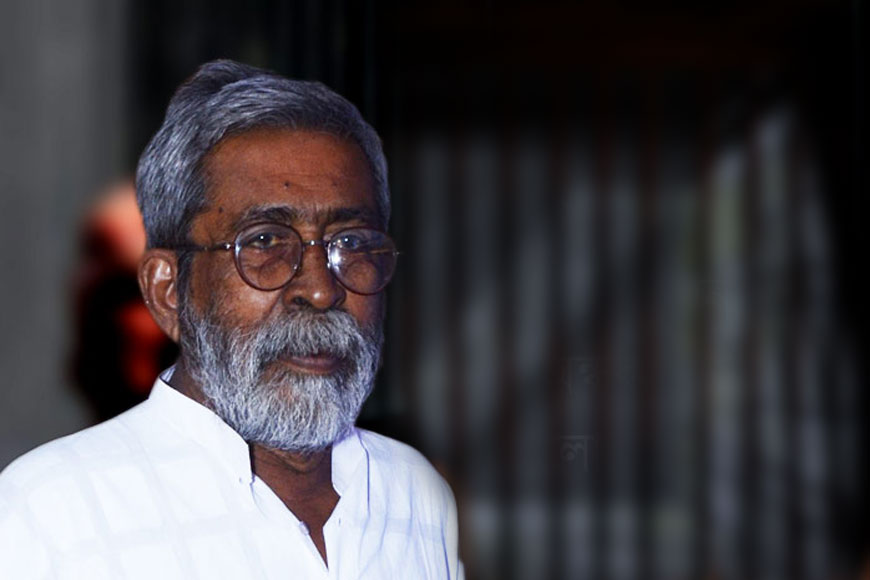How Pradeep Bhattacharya took the power of theatre to prisons

Veteran thespian/ director Pradeep Bhattacharya’s name has transcended way beyond his group, Bahrampur Repertoire, thanks to the groundbreaking work he has been doing with the inmates of Circle Jail, Baharampur prison. He has been training convicts serving life-imprisonment in theatre and taking them across India to perform works of Rabindranath Tagore. The year was 2006. Bhattacharya ventured into the Baharampur prison for a jail performance. During his visit he noticed gender-segregated cells with low levels of literacy among inmates. When he was approached by the prison's Inspector General Bangshidhar Sharma (B.D. Sharma), Bhattacharya readily agreed to work with the prisoners, many of whom were sentenced to life imprisonment. An out and out theatre person, he has been a part of the group Theatre Repertoire for more than two decades now and his forte is his ability to take the bull by the horns. The offer presented him with a tough challenge for Bhattacharya, something he relishes and enjoys doing. Working with prison inmates offered him a novel opportunity to experiment and he took up the project.
In the initial phase, it was a daunting task for Bhattacharya to break the barrier and acquaint himself with his actors. It took him four months to break the ice. Finally, what cemented his tie as director with the inmate actors was a meal, he shared with them, that changed their body language completely. That was the beginning of a new experiment. Rabindranath Tagore has always remained an inspiration for this drama alumnus from Rabindra Bharati University. The humanitarian ideals of Tagore inspired Bhattacharya, who decided to explore the hidden talents of the prison inmates with the staging of Tagore’s Tasher Desh.

The going was tough initially. Prisoners were allowed to rehearse only during the day, so the first performance was organised during the afternoon. Later, Bhattacharya convinced the authorities to relax the rules and also got six female inmates to join the all-male troupe. This was again a ‘first’ time in the history of prisons, where females were allowed to mingle with male convicts and work with them in tandem. The inaugural show was held within the confines of the prison on November 26, 2006. At a glance, the plays might seem too sophisticated for illiterate rustic prisoners, but these are humanistic tales that depict the pain of isolation and an intense craving for freedom – themes that the prisoners can easily relate to. This helped them to get into the skin of the characters smoothly.
In 2007, the very next year, the troupe came to Kolkata and on May 17, staged Tasher Desh. This was the inmates’ first performance outside the penitentiary. The performance got rave reviews from critics and the audience just loved it. Many praised the production and remarked it is easier to stage a dance drama. A proper play calls for more intense acting skills and a deep understanding of the philosophy of the play. Bhattacharya achieved both with prison inmates-turned-actors who had nothing to do with theatre earlier. This came as a bonus for Bhattacharya.
The next year, the troupe was invited to perform in Delhi. Bhattacharya left for Delhi with a 26-member team, comprising both male and female actors and no guards except a couple of railway officials. They staged three shows in Delhi. The first show was inaugurated by the Chief Justice of the Supreme Court. After their return, Bhattacharya chose to stage Raktakarabi but due to some technical problems, he had to scarp the play temporarily. Instead, he zeroed on Tota Kahini. After a number of shows, Raktakarabi was revived and he renamed it Yakshapuri, his most ambitious project so far. Raktakarabi is far more complex than the other two works, but to suggest that penitentiary conditions resemble those in Tagore’s allegorical town sure takes resourcefulness on the part of the director.

Bhattacharya believes theatre is a weapon that has transformed the lives of these people. They may have committed crimes, but theatre made them desperate to make amends with their past crimes and start a new beginning. The troupe plans on taking up theatre when the convicts complete their term and are released. After staging over 50 shows of three Tagore productions in various locations across India, Bhattacharya sure can sit back and bask in the glory of a life well-spent with a purpose to mirror the fallacies of the society by reversal of roles.









